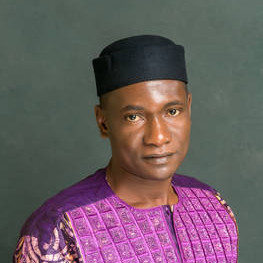Ougba Ben Nafi Ahmadou
Biography Narrative
Born to a Christian mother and a Muslim father, Ougba experienced religious diversity within his own family. His father taught him how to treat the Other as a person, not an object, so Ougba understood the importance of humanism and fraternity at an early age.
Ougba is the Vice President of the Plateforme Interconfessionnelle de la Jeunesse Centrafricaine, a Central African interreligious youth network. He also works as a social mediator. He wants everyone to become an actor for peace, to surpass tolerance and strive for fraternity.
His motto is “Do for others what we would like them to do unto us.”
Interreligious Activities and Initiatives
Inter-Religious and Inter-Cultural Dialogue Project in the Central African Republic

